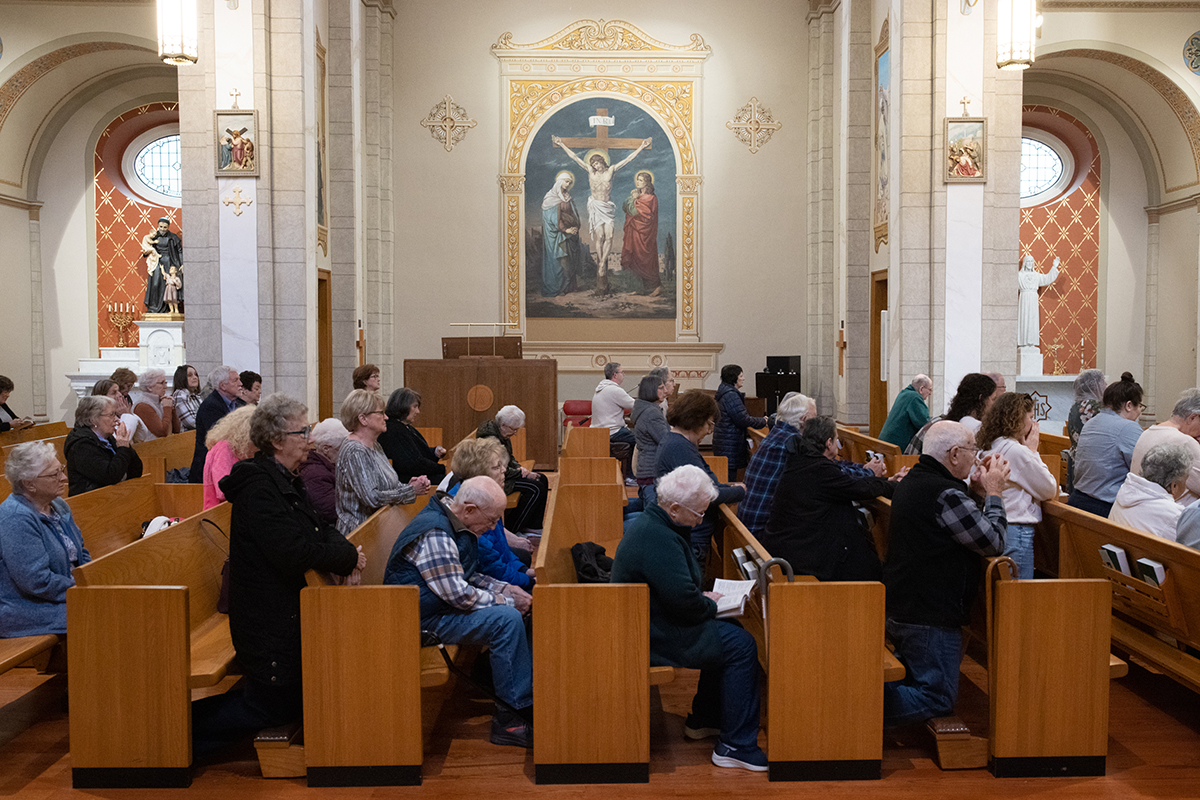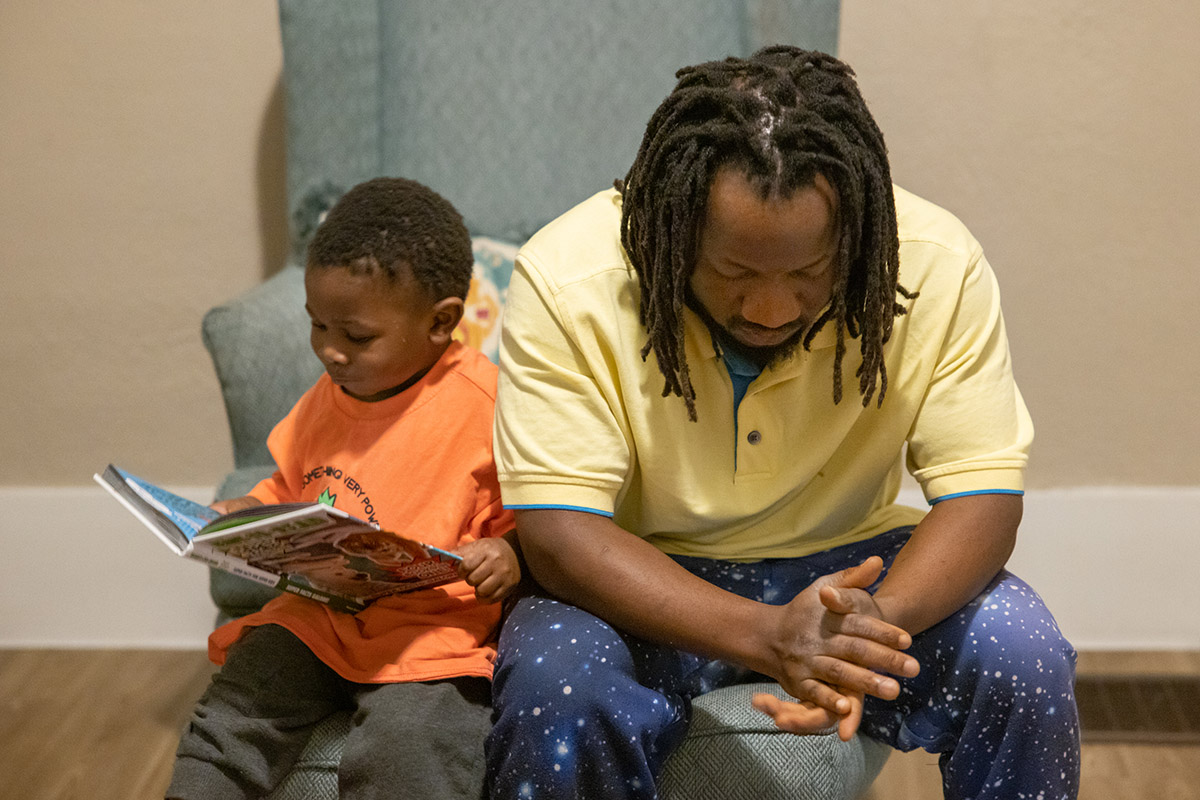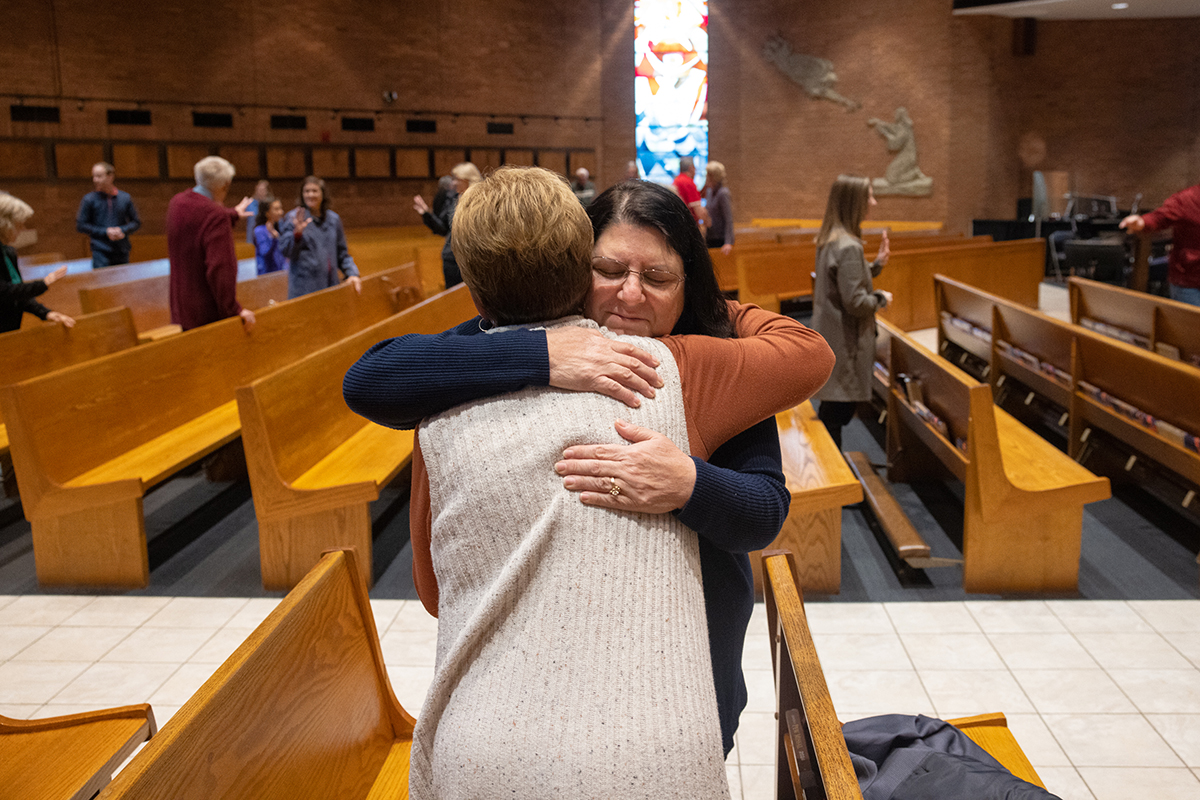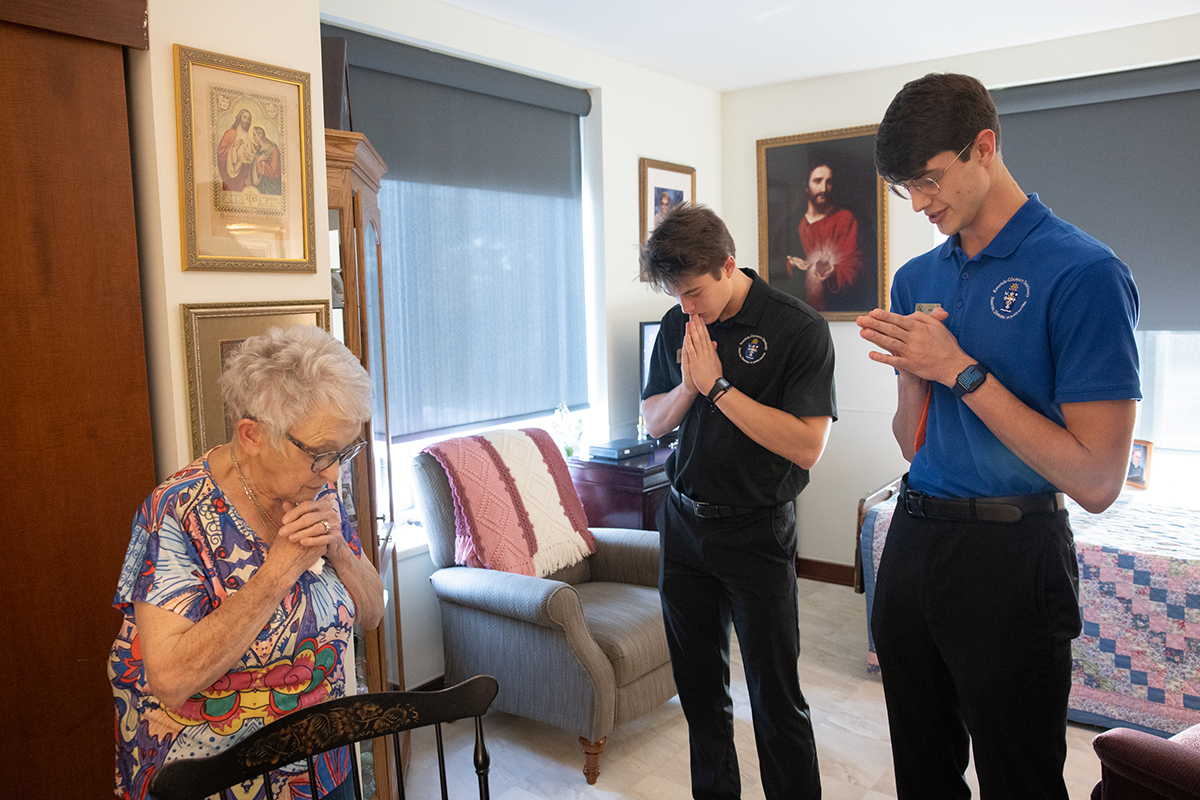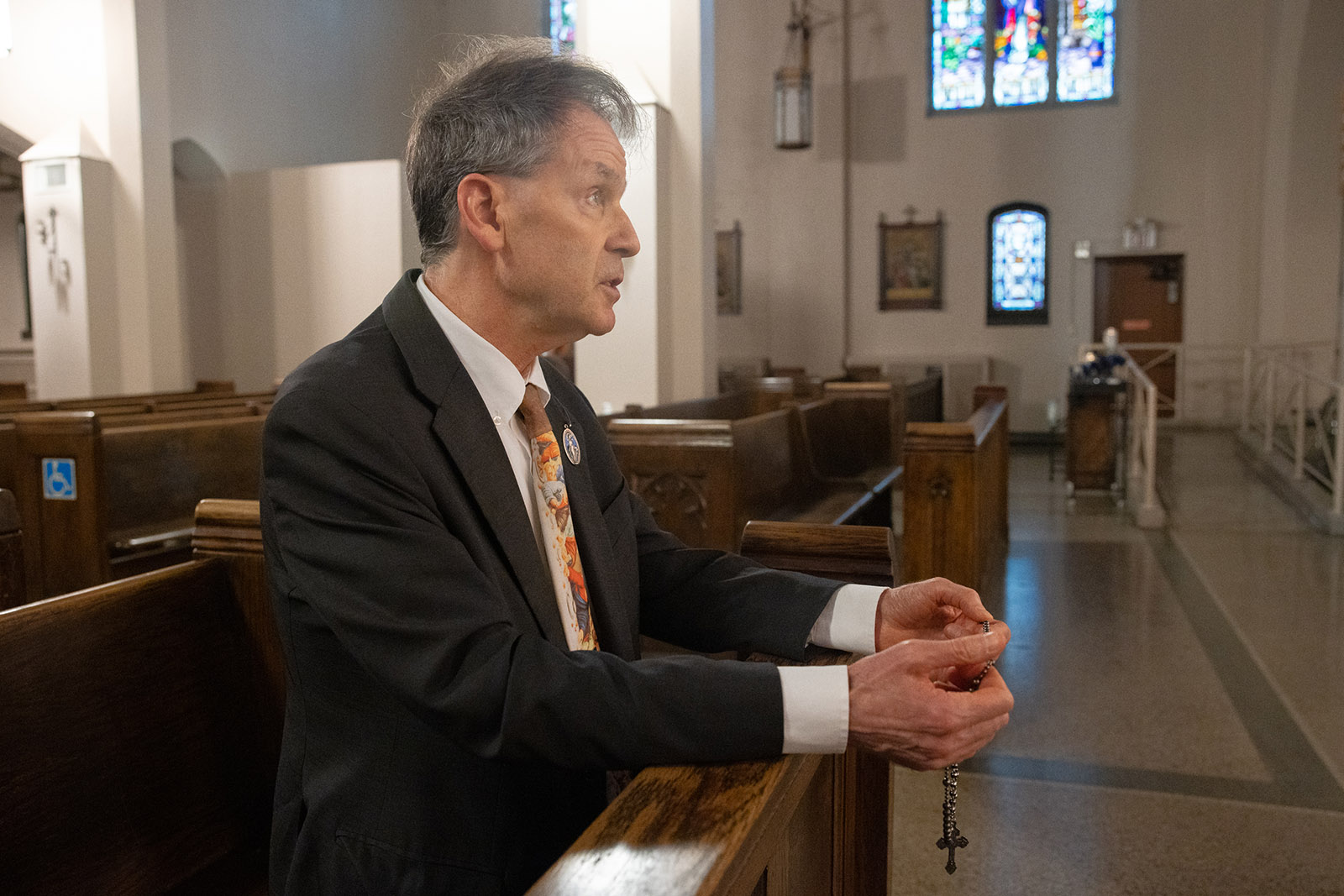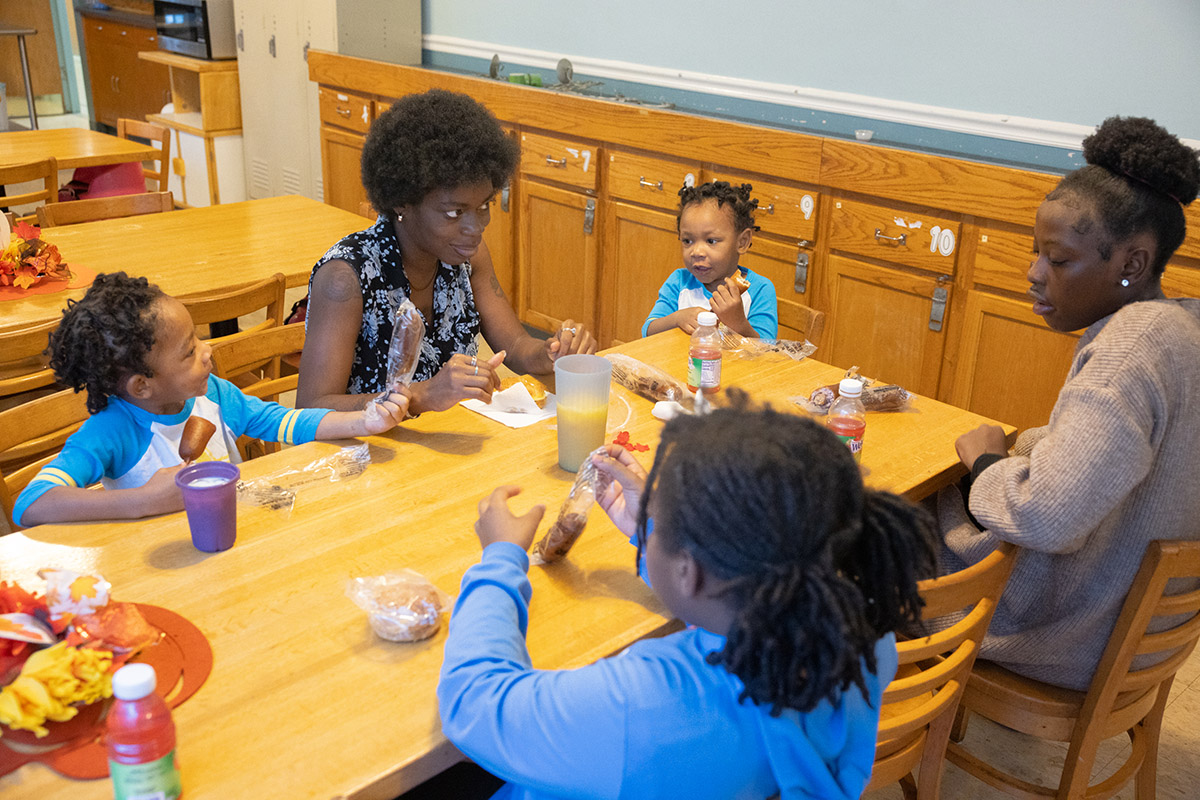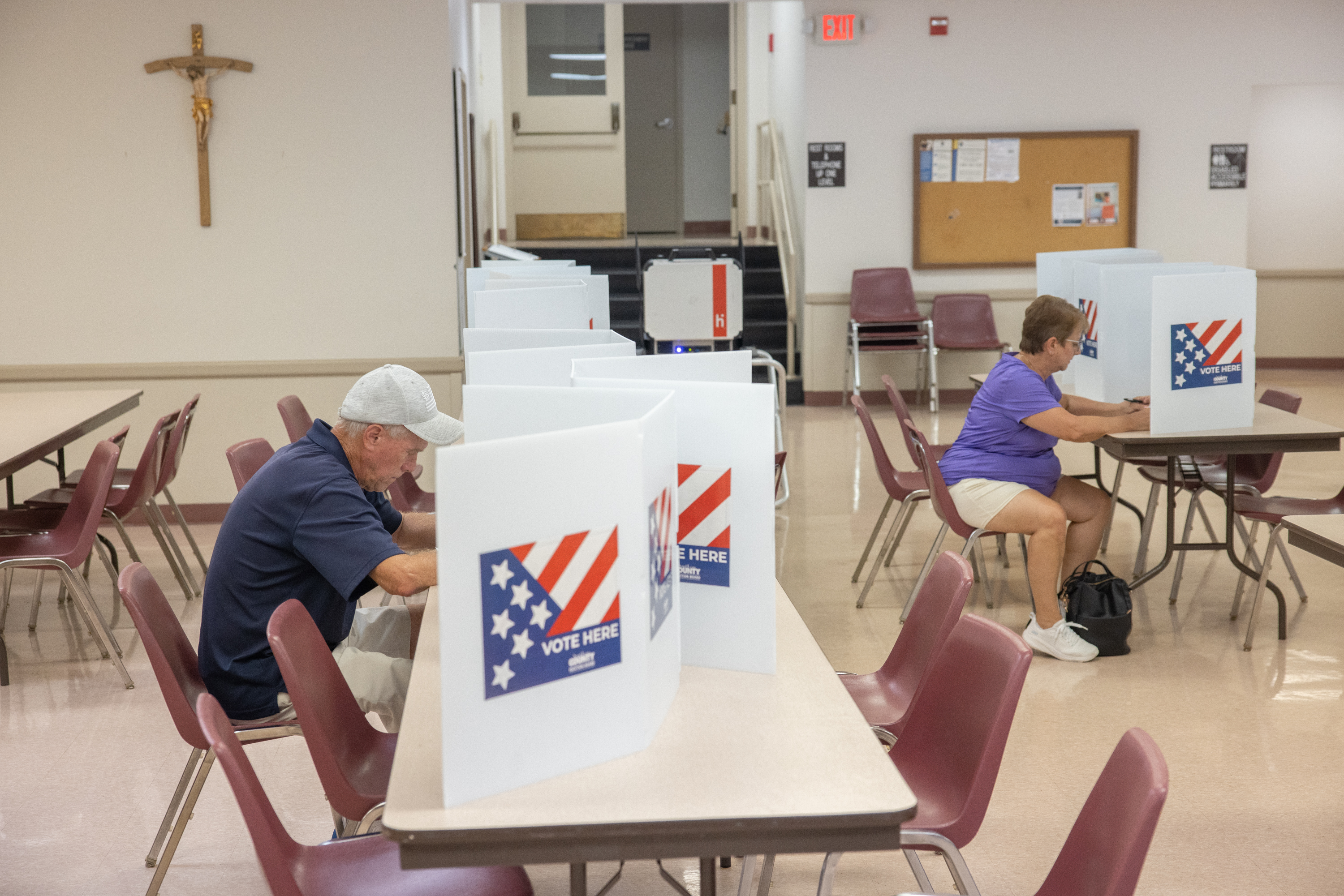Lobbying for life Catholics, organizations find ways to engage in public policy that upholds the dignity of humans
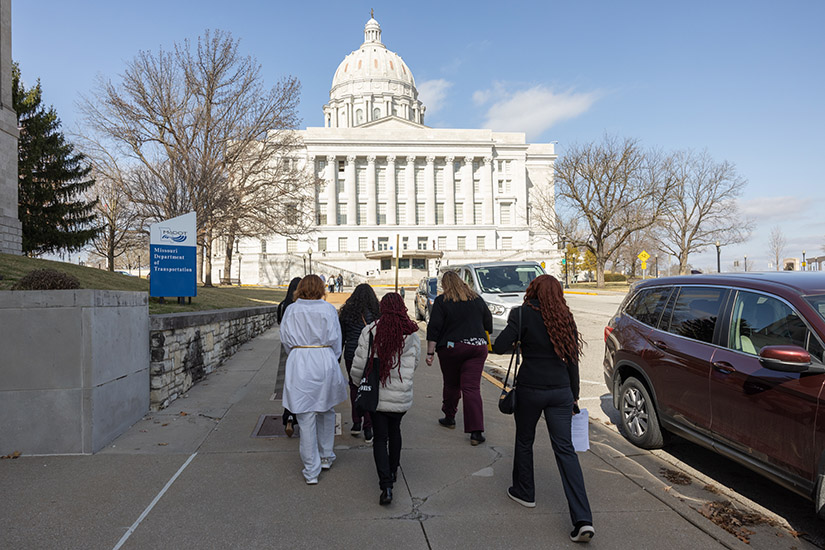
Catholic social teaching says that how we organize our society — in economics and politics, in law and policy — directly affects human dignity and the capacity of individuals to grow in community.
On a recent weekday, students, faculty and alumni from Saint Louis University loaded up into two vans and headed to the Missouri Capitol to meet with legislators.
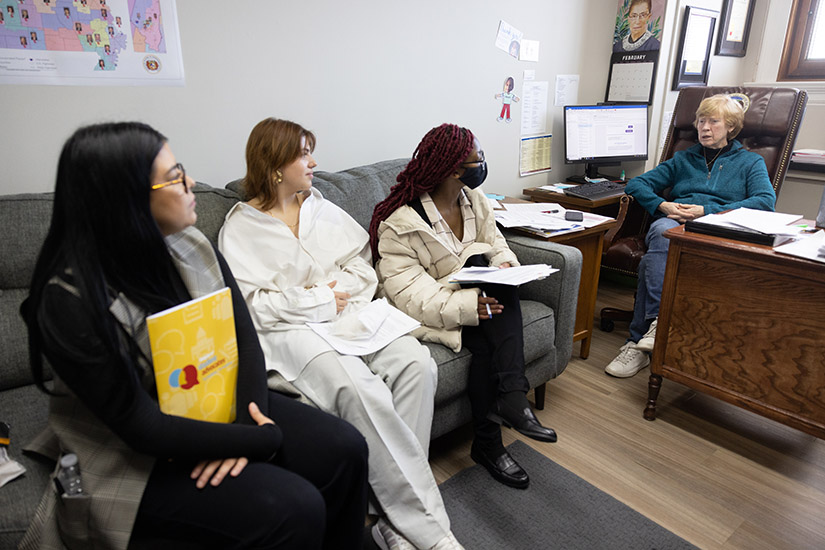
Some were there for a lobby day on tuition equity for immigrants. Others went to talk to lawmakers about health care, the benefits cliff affecting low-income workers and racial issues in education.
For a first-timer, advocating for issues at the Capitol can be quite the learning experience, said Jessica Trout, assistant director of advocacy and civic engagement at SLU’s Center for Social Action.
“The first time you go, it’s more exploratory, but once they’ve been there, it’s like, ‘Wait, I can do this,’” she said. “It makes people realize that our legislators are just people. Once you’re sitting down with them or their aides, you’re educating them. It’s like a meeting you would have at work — you go in prepared, but it’s just a meeting.”
As an extracurricular, SLU’s Center for Social Action offers Policy Pods, which are small groups of students who meet regularly to engage in legislative research on topics including criminal justice reform, immigration, the environment, education and disability rights. The pods also set up legislative meetings to advocate for their positions and host events to educate people on campus, among other activities.
The experience gives students an opportunity to examine how policies shape society and affect the dignity of humans, as well as how to become more directly involved in community advocacy.
At the Capitol, SLU representatives joined with other groups to address legislation that prevents some Missouri residents, including participants in the DACA (Deferred Action for Childhood Arrivals) program, from paying the resident tuition rate or receiving state-funded scholarships at public universities.
“One of the things we found with the legislators who opposed us is that they don’t hear from their constituents on this topic,” Trout said. “This policy keeps people from being able to engage in society and being given the same options to decide on their education like other students.”
One of the tenets of Catholic social teaching says that how we organize our society — in economics and politics, in law and policy — directly affects human dignity and the capacity of individuals to grow in community. The average person plays an important part in advocacy efforts, even if it’s a phone call, letter or a visit with a state legislator, or speaking up for social change on a local level.
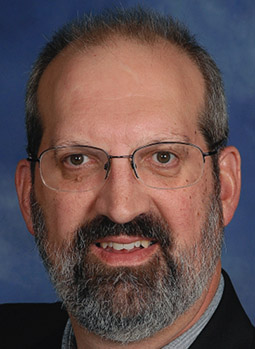
Deacon Sam Lee, who has worked as a professional lobbyist in Jefferson City for 40 years, said regular citizens have the ability to affect real change with public policy, especially at the state level.
“State law has more influence on our everyday lives than federal law,” he said. “I love when we have citizen lobbyists come to the Capitol. Legislators hear from me all the time, but when they hear from regular citizens, especially those who have an expertise in certain areas, they pay attention. If a lawmaker is hearing from even a handful of constituents, they pay attention to that. That’s how laws are changed or modified or passed.”
Addressing the benefits cliff
Catholic Charities of St. Louis sees first-hand the effects of the benefits cliff — a term for when an individual loses out on public benefits (such as SNAP, TANF or child care subsidy) because of a minor wage increase. Often, the raise isn’t enough to sustain a person’s livelihood, even with the pay increase.
Catholic Charities is following legislation addressing the underlying problems with the benefits cliff, said Deacon Tyler McClay, who joined Catholic Charities in 2022 as director of advocacy. Sen. Mary Elizabeth Coleman, R-Arnold, is sponsoring a bill (SB 82) to establish a transitional benefits program to provide a transition to self-sufficiency while incentivizing work and financial stability. (A similar bill is being sponsored in the House, HB 719.)
“Say if a person went from $15 an hour to $17 an hour, they could lose their benefits in any of those areas,” Deacon McClay said. “The raise is less than the (benefits) they would lose. This creates a transitional benefit to where they have an incentive to take the raise,” eventually leading them on the path to self-sufficiency.
One of Catholic Charities’ primary goals is to help people out of poverty. Its Pathways to Progress program provides long-term case management to families in poverty, focusing on economic empowerment, building assets and coordinating other needed resources.
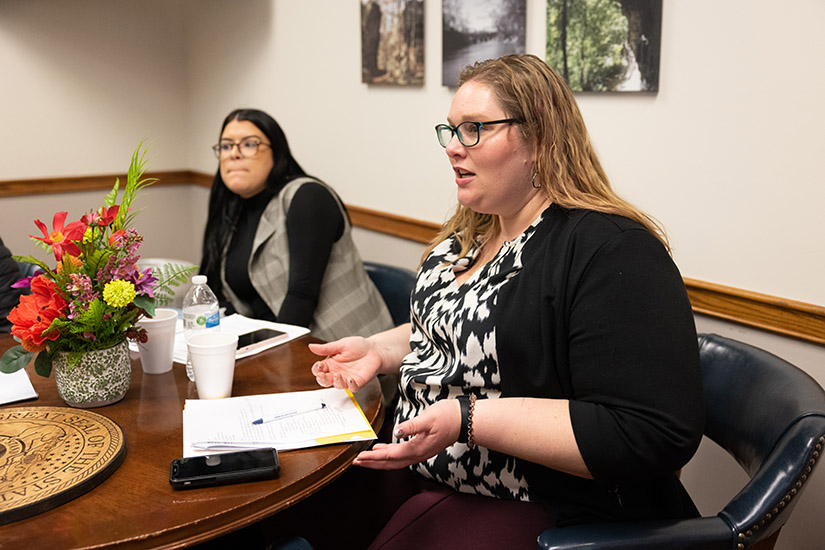
Through the program, “we’re helping people get out of poverty by investing in themselves,” he said. “We hope that our ministries lead people to taking care of themselves and their families.”
In addition to addressing their direct needs, Catholic Charities advocates at the state and federal levels for its clients, many of whom are poor, homeless, living with mental illness and substance use disorders, victims of domestic violence, seniors and children. Priorities are established through the lived experiences of clients as well as the agency’s needs. Catholic Charities also educates the Catholic community to advocate on the local, state and federal levels and build relationships with decision-makers.
“We look at policy, governmental relations and advocating for our clients and those we would otherwise be serving,” Deacon McClay said. Policy goals highlight that every person, including those who are marginalized in society, is created in the image and likeness of God and should be treated accordingly.
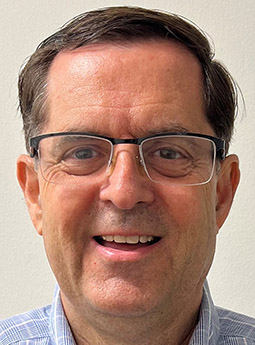
Deacon McClay said another area of interest is looking at areas of public policy that would disincentivize the vocation of marriage, such as the potential to lose temporary public assistance when a couple marries and a second income is added. Catholic social teaching says that marriage and the family are the central social institutions that must be supported and strengthened, not undermined.
“There should not be a disincentive to get married,” he said. “People have those benefits, and if they have a second income they could lose them. We know that marriage and family is often the ticket out of poverty.”
Pro-life legislation
Several pro-life bills are on Deacon Sam Lee’s radar this session, including measures to expand postpartum care benefits, a refundable tax credit for expenses related to adoption and making child care facilities tax-exempt.
The issues are all the more important since the Dobbs ruling last summer overturned the Roe v. Wade decision legalizing abortion. Two bills, SB 45 and SB 90, would provide postpartum coverage for one year after birth for those enrolled in MO HealthNet or the Children’s Health Insurance Program (CHIP), including in Show-Me Healthy Babies coverage for unborn babies and their mothers.
Beyond preventing maternal mortality, studies have found that extended postpartum coverage for lower-income women can help with ongoing medical needs, Deacon Lee said in testimony in favor of the legislation. “A woman with a difficult pregnancy who continues full term might end up with ongoing health problems,” he said. “She should be supported for choosing life and a future for her baby and herself.”
As a long-time lobbyist who has worked on abortion-related legislation, Deacon Lee said he sees how various laws create barriers to marriages and families, which the Church says are “central social institutions that must be supported and strengthened.”
“I see this mostly in the abortion arena,” he said. “There are a whole host of reasons why women get abortions, but the biggest reason is a lack of the father’s presence. What can we do to make it easier for couples to thrive in a relationship and promote those relationships?”
The Church can promote marriage and offer ways for couples to prepare for or enrich their marriages, “but what about in terms of our culture and the laws that affect our culture? We need to grow an awareness.”
Everyone who comes to Jefferson City has a desire to help people, Deacon Lee said, but it’s a question of the best approach to doing that.
“Some want to criminalize behavior, others want to increase funding or programs. But hardly do we ever have a discussion about, how does this help moms and dads and their children?” he said.
>> Catholic social teaching and Lent
Catholic social teaching is the collection of the Church’s wisdom on building a just society and living lives of holiness amidst the challenges of modern society. Modern Catholic social teaching has been articulated through a tradition of papal, conciliar and episcopal documents, beginning with Pope Leo XIII’s 1891 encyclical “Rerum novarum: On capital and labor.”
The Compendium of the Social Doctrine of the Church explains, “The Church exists and is at work within history. She interacts with the society and culture of her time in order to fulfill her mission of announcing the newness of the Christian message to all people, in the concrete circumstances of their difficulties, struggles and challenges. She does so in such a way that faith enlightens them so that they can understand the truth that ‘true liberation consists in opening oneself to the love of Christ.’ The Church’s social pastoral
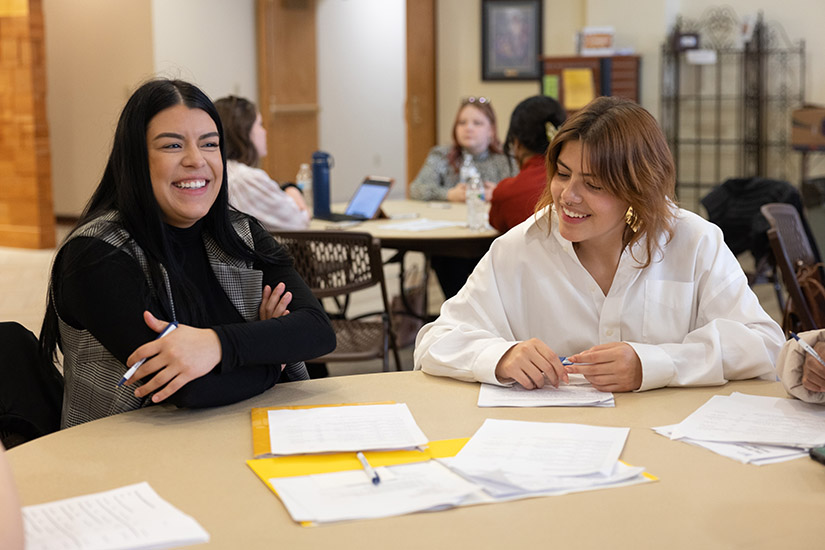
ministry is the living and concrete expression of the full awareness of her evangelizing mission in the social, economic, cultural and political realities of the world.” (Compendium of the Social Doctrine of the Church, 524)
Catholic social teaching is “an essential part of being Catholic,” said Father Don Henke, associate professor of moral theology at Kenrick-Glennon Seminary and pastor of St. Michael the Archangel Parish in Shrewsbury. But because of the wideness and depth of moral issues that make up social teaching, it can often be misunderstood. Some other aspects of moral theology are founded on “negative principles,” like “thou shalt not steal, thou shalt not kill,” Father Henke explained. “But what makes Catholic social teaching unique — and a lot more difficult — is that it focuses primarily on positive moral principles. It draws us to consider the things that we should do.”
It’s easy to tell if we’ve stolen or killed someone. But we have to wrestle with the question of whether we are truly upholding the dignity of all people, or showing preferential care for the poor, Father Henke said, and people can live out the teachings in a vast number of ways.
The important thing is that we do recognize our duty to participate in the work of Christ in the world, Father Henke said. “As St. Teresa of Avila said, we are Christ’s hands and feet, we are the way Jesus cares for people in the world,” he said.
Engaging in social efforts is a natural path for evangelization, too, when we share our “why” with others, he said.
“It would be wasting good efforts if we’re not saying that we are engaging in and doing these things because of our love for Jesus,” Father Henke said. “We’re modeling our lives after Him, and we’re meant to show our love of Him by how we love our neighbor.”
The reflection and sacrifice that we’re all called to during Lent makes the season an optimal time to consider how we are engaged in and upholding the principles of Catholic social teaching, said Father Don Henke, associate profes
On a recent weekday, students, faculty and alumni from Saint Louis University loaded up into two vans and headed to the Missouri Capitol to meet with legislators. Missouri State Representative … Lobbying for life Catholics, organizations find ways to engage in public policy that upholds the dignity of humans
Subscribe to Read All St. Louis Review Stories
All readers receive 5 stories to read free per month. After that, readers will need to be logged in.
If you are currently receive the St. Louis Review at your home or office, please send your name and address (and subscriber id if you know it) to subscriptions@stlouisreview.com to get your login information.
If you are not currently a subscriber to the St. Louis Review, please contact subscriptions@stlouisreview.com for information on how to subscribe.

